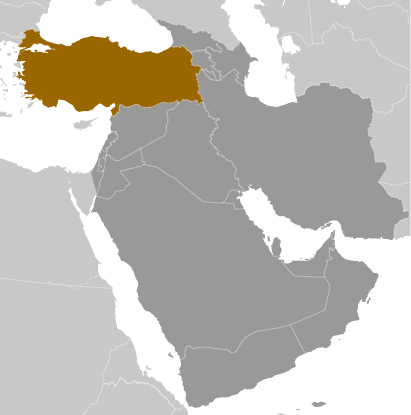HISTORICAL BACKGROUND
There is no specific right of access to information in the 1982 Turkish Constitution. Article 26 gives right of free expression including the right to receive information. Article 74 provides for a right of petition and Article 125 provides for judicial review and compensation of administrative decisions.
The Law on Right to Information was adopted unanimously by the Parliament in October 2003 and went into effect in April 2004.
Citizens and legal persons have a right to information from public institutions and private organizations that qualify as public institutions. Non-citizens and foreign corporations based in Turkey also have a right to information related to them or their interests if the country they are from allows Turkish citizens to demand information from their authorities. Requests are to be made in writing or in electronic form if the identity of the applicant and their signature can be verified using a digital signature.
Government bodies are required to respond in 15 working days. They must provide either a certified copy of the document or when it is not possible to make a copy, requestors can examine them at the institution. Oral requests are to be treated "with hospitality and kindness" and immediately reviewed and resolved if possible.
There are exemptions for state secrets which would clearly cause harm to the security of the state or foreign affairs or national defense and national security; would harm the economic interests of the state or cause unfair competition or enrichment; the duties and activities of the civil and military intelligence units; administrative investigations; judicial investigations or prosecutions; violate the private life or economic or professional interests of an individual; privacy of communications; trade secrets; intellectual property; internal regulations; internal opinions, information notes and recommendations if determined by the institution to be exempt; and requests for recommendations and opinions. Information relating to administrative decisions that are not subject to judicial review or which affect the working life and professional honour of an individual are still subject to access. Other legal regulations which withhold information are overridden by the law.
There is no internal appeals mechanism. Appeals of withholdings are to the Board of Review of the Access to Information. Its jurisdiction was originally limited to cases relating to national security and state economic interests but the law was amended in November 2005 to allow appeals in all cases. Prior to the amendment, the Board still heard cases relating to the other issues. It can set up commissions and working groups and invite government representatives and outside organizations to participate. Its secretariat is handed by the Prime Ministry. The Board received 1566 appeals through March 2006. It accepted 567 cases.
Appeals can then be made to the administrative court. There are a few pending cases mostly related to non-compliance with board decisions by public authorities but there have been no decisions.
Sanctions can be imposed under the criminal law and administratively against officials for negligently, recklessly or deliberately obstructing the application of the law.
Institutions must prepare reports on the application of the law and submit them to the Board of Review. The Board must produce an annual report to submit to the National Assembly which will be made public. As of June 2005, there had been 395,557 requests, 87 percent of which the information was given fully. It was only partially given in 13,300 cases and denied in full in 20,000 cases.
An initial review of implementation made in October 2004 by NGO BilgilenmeHakki.org found that the major ministries had made serious efforts to implement the law. All had set up their FOI units and were taking requests through Internet portals. Over 75 percent of requests were being provided in full, some ministries such as Justice and Trade and Industry replying in the same day. However four ministries had not responded to requests.
A review by BilgilenmeHakki.org in 2004 and 2005 of municipalities and governorships found that few local authorities websites were following the rules while the governorships were somewhat better but still were failing a significant number of times.
The government published drafts of bills on "State Secrecy" and "Trade Secrets" in February 2004. It is expected that the draft bill on "State Secrecy" will codify the existing practice of allowing officials to classify documents with little oversight or restrictions. The bills have not been adopted yet. The Criminal Code prohibits the unauthorized disclosure, obtaining, or publishing state secrets, including of another country. Penalties include jail time up to ten years. Obtaining or publication of "banned documents" (non-public official documents) is also prohibited.
A draft data protection bill was also produced by the Ministry of Justice during 2003. It has also not advanced.
2004 freedominfo.org Global Survey Results - Turkey





















